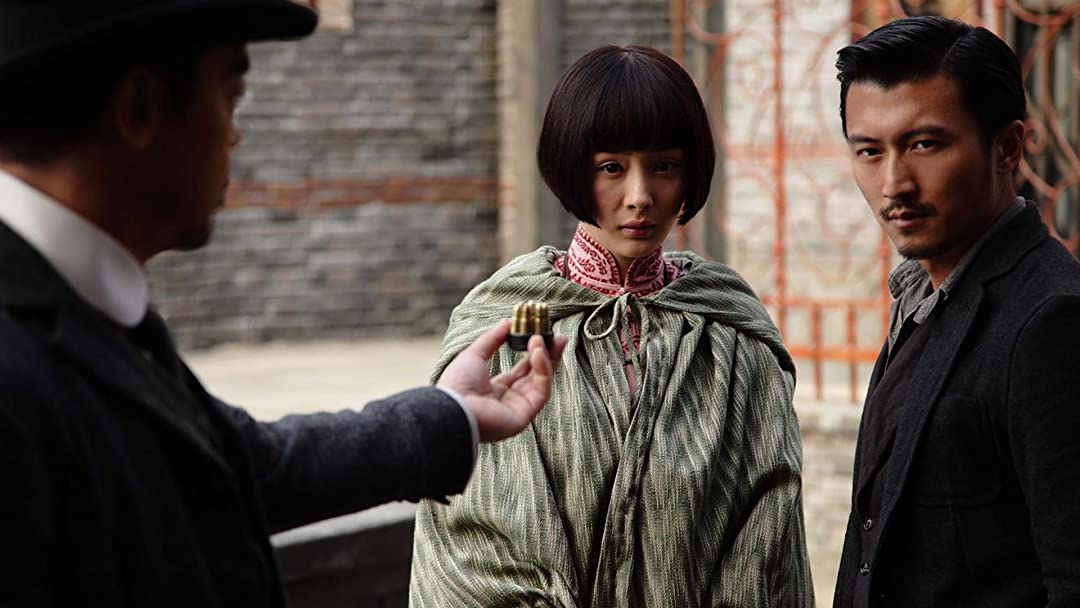By Chlotrudis Independent Film Society
Rating: 4 cats
Director: Lo Chi-leung
Starring: Boran Jing | Lau Ching-wan | Liu Kai-chi | Nicholas Tse | Wu Gang | Yang Mi

Original language title: Xiao shi de zi dan
Country: china, hong_kong
Year: 2013
Running time: 108
IMDB: http://www.imdb.com/title/tt2106741/combined
Kyle says: “About twenty years ago, I was complaining to a friend how formulaic and uninteresting most new American movies were, and he asked me if I was familiar with Hong Kong cinema. I said no, asking if he meant those badly dubbed, wretchedly acted, sloppily edited, incomprehensible kung fu movies. He suggested I look into the films of John Woo, such as A BETTER TOMORROW, THE KILLER and BULLET IN THE HEAD. The element of surprise, so often missing in American commercial cinema, was everywhere in Hong Kong movies. I was immediately hooked and started frequenting Chinatown stores and videotape and laserdisc rental shops. But there was nothing quite like the experience of seeing HK movies in the Music Palace in Chinatown, a gigantic old-fashioned movie theatre that showed HK movies otherwise unavailable to enthusiasts, in widescreen with subtitles which were usually grammatically incorrect or just plain silly, or both. Its closing in 2000 coincided with the end of the laserdisc era.
“Asian film fans were way ahead of Americans in appreciation of cinema heritage, and special Japanese and Chinese editions of laserdisc titles became cherished possessions of genre mavens. I still treasure some eighty HK laserdisc titles, all of them produced prior to the ‘handover’ of Hong Kong to the People’s Republic of China on June 30, 1997. The film industry changed dramatically, not only in the reduction of features from between 200 and 300 to about 40, but also in the hegemony of the State Administration of Radio, Film and Television regarding issues offensive to the Chinese government. This has resulted in drastic diminution of political content, increase of the filmic presence of Japanese bad guys (World War II seems to have continued), and inspiration of subversive political savvy not unlike what we observed for years in the work of artists of the former U.S.S.R.
“The New York Asian Film Festival — a co-production of Subway Cinema and the Film Society of Lincoln Center — ran from June 28 to July 15, 2013, most of the screenings taking place at the Walter Reade Theater in Lincoln Center, with a dozen at the Japan Society the final weekend. Countries represented included the Philippines, South Korea, Japan, Thailand, Taiwan, Hong Kong, China and Hong Kong/China with co-productions. The distinction among mainland and HK movies, as well as co-productions between China and Hong Kong companies, is confusing, with HK films usually in Cantonese and Chinese usually Mandarin (as are Taiwan films since 1983). The novelty item of this year’s festival was a piece of fluff from North Korea, declared the first North Korean film ever screened in Lincoln Center.
“ THE BULLET VANISHES was the opening screening of the current New York Asian Film Festival. An outrageously entertaining detective thriller set in a Northern Chinese munitions factory in the mid-1920s, it commences with a worker accused of theft forced to play Russian Roulette by her evil warlord boss in driving rain. She loses. Thereafter mysterious murders start to take place, terrifying the factory workers because there are no bullets found, prompting whispers of a curse: ‘The phantom bullet is going to kill you all.’
“A master criminologist at the level of Sherlock Holmes in both experience and eccentricity is summoned in the person of Inspector Song Dalu (Lau Ching-wan), oozing existential Weltschmerz from every pore. He discovers that the local police chief (Wu Gang) is actually in league with the villainous exploitative warlord (Liu Kai-chi), necessitating his working to solve the mystery with youthful hotshot detective Captain Guo Zhui (Nicholas Tse), who is reputed to be ‘the fastest gunman in Tiancheng.’ The chemistry between the two actors is noteworthy, and fans will both recognize in the eyes and take pleasure in the acting of Nicholas Tse, recipient of numerous awards for his heartbreaking performance as Ah Si in BODYGUARDS AND ASSASSINS (2009).
”While we digest the logic of statements such as ‘9 times out of 10, the person who discovers the body turns out to be the murderer!’ and ‘The one with the most to gain is always the mastermind!’ or my favorite, ‘There is no such thing as a perfect crime, just good people gone bad’ — bullet holes in walls or autopsy shots through ribcages temporarily confound the experts. A principal achievement of THE BULLET VANISHES is one of the smartest, most vivid jobs of sound design and sound effects editing in recent years, by Phyllis Cheng and Ricky Yip, making the firing, whizzing and thumping of bullets into stone, metal, wood and even flesh a kind of sonic counterpoint to the feverish musical score by Teddy Robin and Tommy Wai, which was nominated for both Golden Horse and Hong Kong Film Awards. The solution to the mystery is worthy of both Sherlock Holmes and Alfred Hitchcock 4 cats
“Seen Friday, June 28, 2013, New York Asian Film Festival at the Walter Reade Theater, Film Society of Lincoln Center, New York.”
